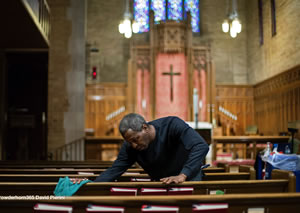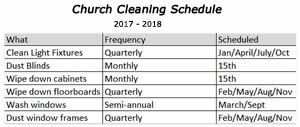
The Petri Dishes
When living in Wyoming, I taught high school chemistry. Next door to my classroom was that of biology teacher Everett Befus. In addition to both teaching science, we were football-coaching colleagues. Might sound out of expectation, but we rarely talked football; usually more about societal issues, some religion, and often about the philosophy of science.
Connecting our rooms was a small lab prep room. It was a place to organize experiments and storage areas for all the beakers, test tubes, and the miscellaneous materials and equipment of science. I used the room during my daily preparation period, and Ev used it during his free period. Neither one of us kept it very organized and tidy.
One spring, Ev was assigned a student teacher: Don, I think. Don started his learning experience simply observing, followed by presenting parts of lessons, and then, on the last two weeks, totally on his own. To honor his mentorship responsibilities, Ev stayed within earshot in our prep room.
One class each day coincided with my own prep period, good opportunities for us to talk. One such day, Don was working with students on a guided demonstration. In the prep room, Ev and I were into some philosophical discussion of the way students learned science and other such theories of science and teaching. We were into fairly heavy stuff (for us, that is).
Suddenly, the door to Ev's room slid open, and Don barged in with a look of panic. "I'm in the middle of my demonstration!" he blurted. "Where are the petri dishes?!"
Ev rebounded from our deep thought, opening and shutting cabinets until he got to the one with the petri dishes. He and Don carried the valuable biology tools to the room. Crisis averted! Can't remember whether Ev and I got back to our deep thoughts.
That small incident has stayed with me all these years, and I think there's a valuable lesson in it. While it's important to think, discuss, philosophize, and such; sometimes it all comes down to the basic and the mundane. ... Like, "Where are the petri dishes?"
In the realm of religious and spiritual life, we know bible study is important. Much can be gained by a small group wrestling with a few verses of scripture. It can be a very heady and even emotional experience for me to research and write these Reflections. What did the original Greek say in this passage? What is really meant for us in the commandment, "Love your father and mother"? All important and critical stuff of a life of faith.
But equally important (and perhaps sometime more important) is the nitty gritty, mundane, but necessary, chores that
provide an environment for faith to grow and mature. Set the alarm for 5:30 A.M. so I'll make it in time for my Friday
men's group to share and read scripture. Did anyone remember to set up the overhead projector so the guest speaker can show
PowerPoint slides? I want to put a prayer request into the offering plate when it is passed; but where are those blue slips
 of paper? Someone forget to put them in the pews? Hope the Altar Guild remembers to change altar cloth to the color of
Advent. Did anyone remember that we were low on wine and buy a few fresh bottles? Not the deep spiritual stuff of
the life of faith. ... But, maybe it is.
of paper? Someone forget to put them in the pews? Hope the Altar Guild remembers to change altar cloth to the color of
Advent. Did anyone remember that we were low on wine and buy a few fresh bottles? Not the deep spiritual stuff of
the life of faith. ... But, maybe it is.
For several years, I taught an intensive bible course, The Bethel Bible Series. It was challenging and deep ... not a survey course. There was one portion of the course that many students would originally rebel against. Each week, they were to memorize various scripture verse topics along with their appropriate book and chapter. "Blessed to be a blessing:" Gen. 12. "The Good Samaritan:" Lk.10. "God can use evil for good:" Gen. 50. Five to eight of these a week. For 40 weeks. Although first seen as a childish, grade-school chore, most soon realized that committing these to memory was a great help. Rather than say something like, "I know it says somewhere that ..." or spend time searching for that verse in a biblical haystack, one could quickly turn to the desired reference. A bit like knowing quickly where to find the necessary petri dishes. (It's probably against all church protocol, but the Book of Common Prayer that is in my pew spot has a number of dog-eared pages. Don't tell.)
Often leaders never realize their potential because they overlook or cannot deal with the details of effective leadership — the "petri dishes" of their position. I've seen pastors who had excellent people-person skills and ones who delivered meaningful sermons flounder because they weren't able to manage their petri dishes. Sadder yet are those who failed to realize that even knowing about the petri dishes was an important part of their position.
Much of a life of faith seems to involve discipline. Not just discipline to follow God's commands. But, the discipline to do those things that can help keep us in contact with our God. Sometimes setting out the petri dishes before going to bed helps.
Think INSIDE the Box!
A phrase that causes me to shudder is when a speaker or group leader says, "We have to think OUTSIDE the box!" I can feel my eyes rolling as I type these words. As one who thinks he's fairly good at thinking outside the box, let me explain.
My problem with Think outside the box is that often it is taken as a starting point ... not something much later in the process. It can be employed by people who have never really learned what is inside the box. I remember seeing a notice in a church newsletter promoting a new Adult Sunday School series: "A Fresh Look At Galatians!" Nice catchy title. Not to be too judgmental, but when I saw the sign-ups for the series, most of the folks had probably never read Galatians, let alone have an idea of the traditional, stale look at Paul's letter to the Christian folk in Galatia.
When I was middle school principal in Wyoming, I remember the youthful excitement of our jazz band. Many were sure they were just a few gigs away from sounding like Chicago, and more than one thought themselves the next version of Maynard Ferguson. I sat in on practice one day as they were on their third run-through for an upcoming concert. "Mr. Jackson," the drummer yelled during a pause. "When are we going to learn to improvise?" The band teacher just scowled a bit, shook his head, and tapping his baton with each word said, "We Will Improvise ... WHEN ... You Learn to play it as the darn thing is Written!" (He may have used a word stronger than darn, but I let that slide on my observation form.) "Now, let's take it from the beginning, one more time — the way it is written."
I think it very valuable to think outside the box ... but not before you know what is in the box. As a football coach, I prided myself on being able to teach players how they could vary things — such as the fullback moving a bit closer to the line on a certain play — to gain an advantage or give the defense a different look. But, that only happened with savvy players who had already mastered the play the way it was designed to be run. Improvise AFTER you know how to do things the basic way.
Not only is Thinking Outside the Box as a starting point a poor analytical approach, I think it can be
dangerous. Without any knowledge of what's inside the box, we can be subject to any huckster that comes along with what
 seems an outside-the-box appealing new idea. In a day when one has trouble distinguishing fake news from real news, one
is really in trouble when there is no solid awareness of the actual history that is inside the box.
seems an outside-the-box appealing new idea. In a day when one has trouble distinguishing fake news from real news, one
is really in trouble when there is no solid awareness of the actual history that is inside the box.
As a Protestant, I've been raised on the emphasis that belief in Christ and the teachings of sacred scripture are all that is needed for our guidance. Catholic teaching would add another: Sacred Tradition. I may not want to elevate "church tradition" to that status, but, I think we are foolish to dismiss tradition as simply mere tradition. Even without giving tradition any sacred status, I think we are wise to consider tradition (which I think of as the stuff inside the box) when we want to think outside the box in matters of church and faith. We owe it to ourselves (and our church) to understand the basis of tradition as we consider new ways to think.
On a serious matter, I may want to think outside the box regarding the long-accepted view of marriage within the church. But, to do so without really understanding the underpinnings of the traditional view can lead me to think that anything "new" or a societal trend is a good or right view. An understanding of what, for example, St. Augustine had to say on marriage might help guide my thinking along new lines. And, in some circumstances, when we seriously examine tradition, we can realize that the traditional really does make sense.
On a less serious topic, every church I've been a part of has had a degree of controversy regarding whether it's appropriate to applaud after a choir's anthem. "No, it's a sacred time." "Yes, I'm showing my appreciation for something that moved me." I sure don't want to get into that irresolvable can of worms, but I have found that congregations can have more meaningful discussions about this issue when it is realized that the tradition not to applaud was usually based on the view that an anthem was a part of the offering, and not just a performance stuck into the service at random. Knowing what was inside the box was quite helpful.
A life of faith is more than meditation, more than studying scripture, more than group discussions of the meaning of a gospel passage. Knowing where to find the petri dishes is quite important. Did we assign anyone to take minutes at the congregational meeting? A life of faith also includes learning about the old traditions. Faith needs a vision of where we want to go; but, it also needs an accurate picture and understanding of where we've been. And, why we were there.
Do You Know Where YOUR Petri Dishes Are?
I found mine. ... They were inside the box.
Resources Related To this Reflection
 Psychology Today article:
Psychology Today article:First, Think Inside The Box.
By Christopher Peterson Ph.D.





